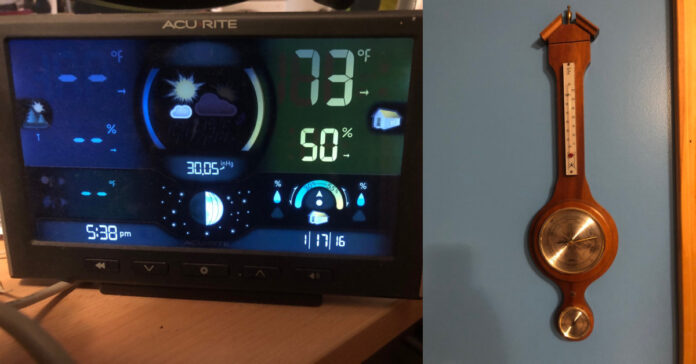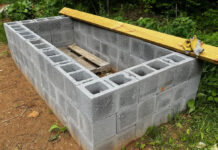
I’m thinking of getting rid of many electronic items. Why? Because they keep breaking and cannot be fixed. They have to be replaced. In a post-SHTF situation, that will not be possible.
We are already less automated than many households, but we could have more manual devices that do not rely on the Internet or require electricity.
Run Chicken Door Failure
For weeks, my automated chicken coop door has been on the fritz. Sometimes it opens, sometimes it closes, sometimes it does neither. After not working for a few days, it will work for a week, then quit again.
I emailed the Run Chicken people and in their first email they said this: “Do not worry, we will check and fix your problem.” Lies. Their tech support people were not very technical, nor were they very helpful. Turns out they could not fix the problem. Their solution to the problem was to buy an $80 part. They’re going to be getting some negative feedback online.
Digital Lock Failure
Just yesterday, our electronic lock from Yale failed. We have this lock on the front door and it does not have an actual key hole, just a touchpad. The touch pad works, it beeps and plays a nice little tune, but the motor that turns the bolt seems to have failed. I put in a new set of Duracell batteries. It still didn’t work. So I tried a set of Energizer batteries that were purchased more recently, but that didn’t help either. I called their tech support line. (Kudos to Yale for having a phone number and real people who speak decent English.) Ivan asked me the model number and I give it to him and he says “Wow, that’s an old one! I’ve never worked on one of those before. Hold on.” How old is it? I bought it two years ago when we purchased this house.
I suspect Ivan called up a PDF of the same owner’s manual I had already looked through.
We reset the lock, we put in new codes, but the motor doesn’t work. The keypad lights up, it beeps and plays electronic tunes, but it doesn’t lock or unlock. Ivan had no idea how to test the motor, determine if a motherboard is bad, or if there is a broken wire.
Tech Support Can’t Help You
Both the tech support at Run Chicken and Yale could help me program my unit, but none of them could diagnose or help me fix an actual hardware problem. They don’t want me to fix their product; they want me to buy a new one.
We can still lock the house from the inside, but we can’t lock or unlock it from the outside. So we’re stuck using the garage door to go in and out. How long, I have to wonder, until that breaks? I’m going to disassemble the lock on Sunday and see if I can figure out anything. The deadbolt moves freely when I turn the interior knob, so it’s not binding.
Needless to say, I’m buying a different brand of lock next time. And a different chicken door, if I stick with an automated model.
Dress Rehearsal
I consider this a good reminder that after the collapse, very electronic device we own will eventually fail and there will be no way to fix it post-SHTF.
One day, those 18-volt and 40-volt battery powered tools we own will stop running. Eventually, the solar power panels we use to recharge them will quit. Sure, they have a 30-year life, but that’s the panel, not all the associated electronics. If you have a solar generator, it will stop running one day, too. Your electronic gate opened will fail. (My old one broke annually, but I could fix it myself. I have enough experience making repairs. I could probably be one of their certified field technicians.)
Oh, you bought the extended warranty? Good luck. After the fall, there will be no one to call, no one to send it to, and no way to fix it. You’ll have to start salvaging the abandoned homes around you, maybe venturing into the closest city, to look for replacement items or parts. If their original owners died early in the collapse, whether from bullets, starvation, exposure or disease, you might get lucky and find a working replacement.
Or, I could go back to a lock that uses a key. And a chicken coop door we open by hand, which is what the Run Chicken door has become at least half the time.
I kid about the garage door opener failing. They are usually pretty robust (and mine does not have an app). We once lived in a house with a manual door, and we’d tell the oldest kid to hop out and close the garage door behind us every time we left the house. I’m not too worried about manual garage doors. Post-SHTF, we won’t be driving anywhere.
Convenience versus Necessity
Having a lock is a necessity. Have one with a code I can give my daughter or neighbor and ask them to check on the house in my absence is a convenience. An automated garage door is a convenience. That solar generator might become a necessity if the grid goes down. As preppers, we need to balance convenience today with robustness and usability post-SHTF. Alternatively, we can have automation today and manual backups for tomorrow.
For example, I have plenty of hand tools, including multiple hand saws and two drills where you physically turn a crank to power the bit. Power tools are a huge help, but we’ll be able to manage without them; it will just take longer to drill a hole or cut through 2×4.
I think we all expect to see the end of our TVs, appliances, and phones to die when the grid goes down, but there are many other devices we hope to charge with solar power and continue to use, such as those battery-powered hand tools. The question I now face is how long will they last and what alternatives are there?
Here are the convenient electronic devices we have and their manual alternatives, which in most cases we also have:
- Digital weather station versus a rain gauge and barometer.
- Digital thermometers versus the ones that use mercury.
- LED or battery-powered clocks verses old fashioned grandfather clocks, cuckoo clocks, and sun dials.
- Battery-powered watches versus wind up or self-winding watches.
- LED and incandescent lights and flashlights versus candles, kerosene lanterns, and Coleman lanterns
- Laptop computers and tablets versus reference books and notepads. (I got rid of my manual typewriter years ago.)
- Fancy coffeepots versus a French press or an old percolator.
- Sewing machine versus hand sewing.
- Electronic picture frames versus printed pictures, of which we have less and less these days
- Digital music sources, such as streaming and iPods
- Video cameras that notify us if they detect motion versus a human being on guard duty
- Cell phones versus military surplus hand-crank phones that require us to run wires.
- GPS versus paper maps
As I have stated before, when the electricity dies, the things we will miss most here at Pete’s Prepper Property are refrigeration, cooking/food prep, hot water, and the washing machine. Not being able to know the time to the exact second confirmed by the Atomic Clock won’t be that big a deal. Everything taking more work and far more time? That will be the bigger deal.







Two is one and one is none.
If it’s important, I have a backup. My wife uses an electric jar opener and an electric can opener. She has rheumatoid arthritis in her hands which makes most hand work very difficult and painful. I have a spare electric jar opener and a spare electric can opener, just in case. And, I have a solar generator to power small electric lights and appliances if the electric fails (and a backup solar generator).
Comments are closed.